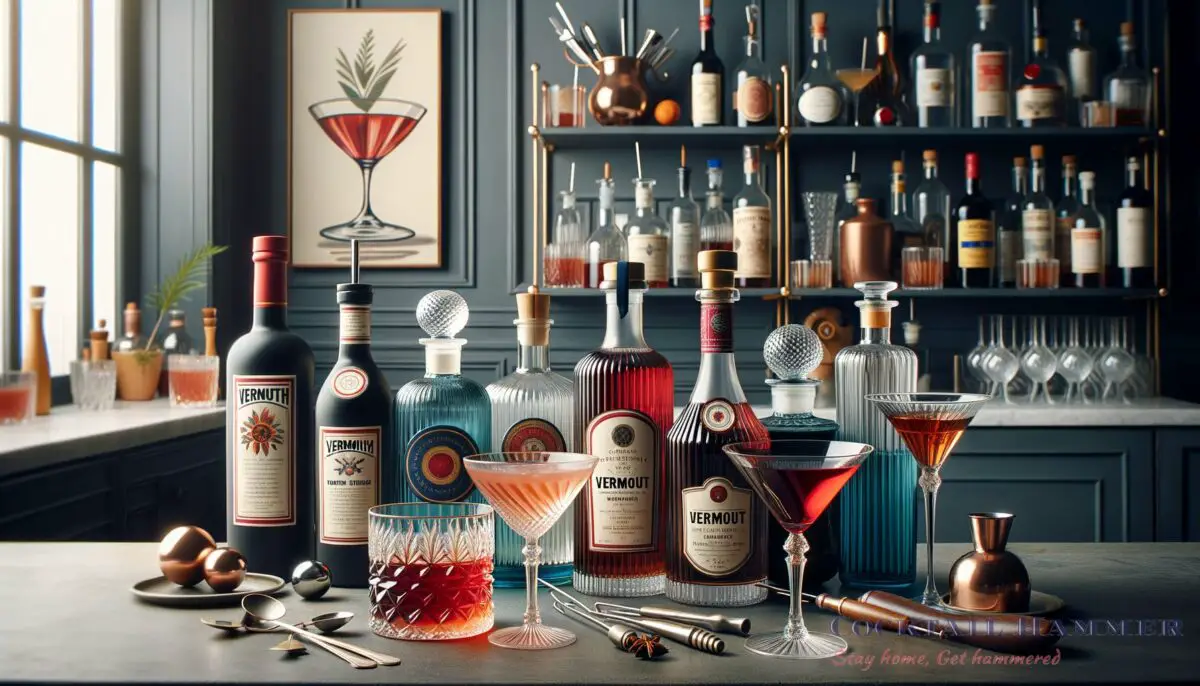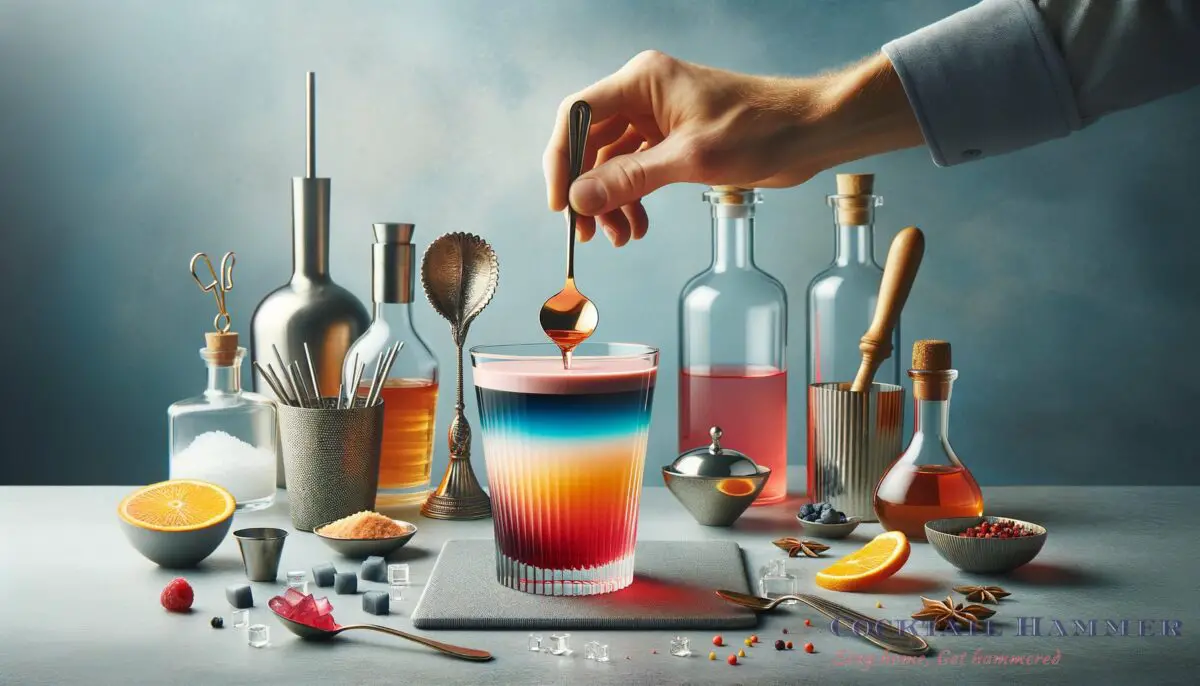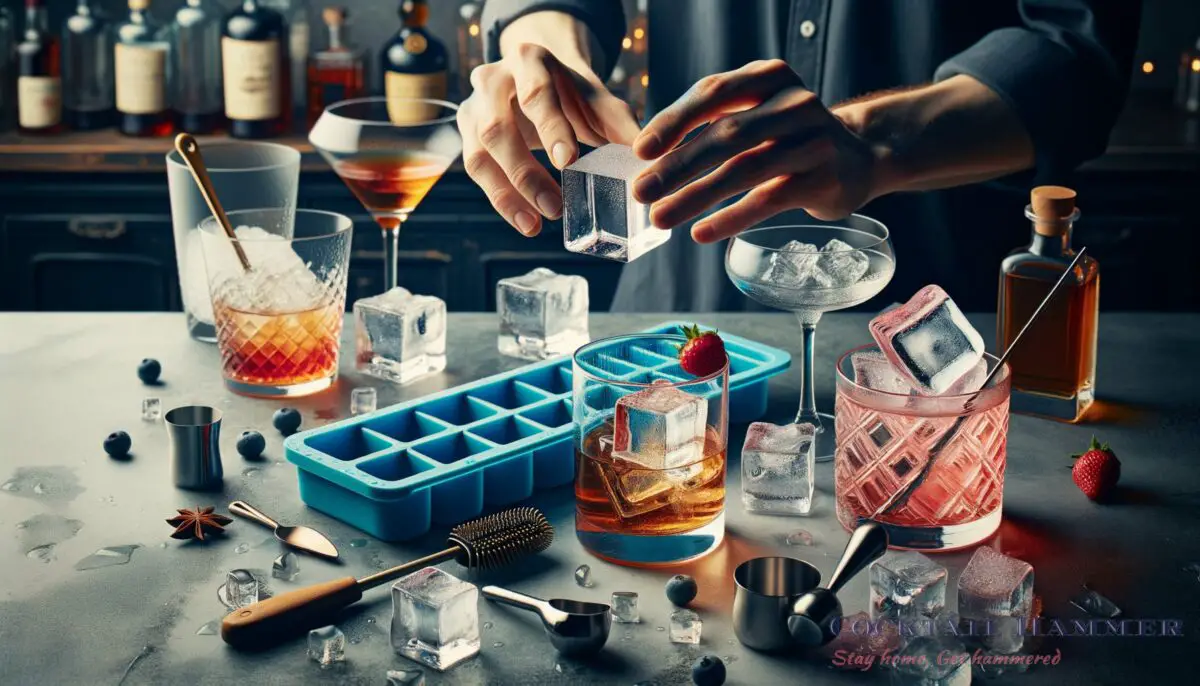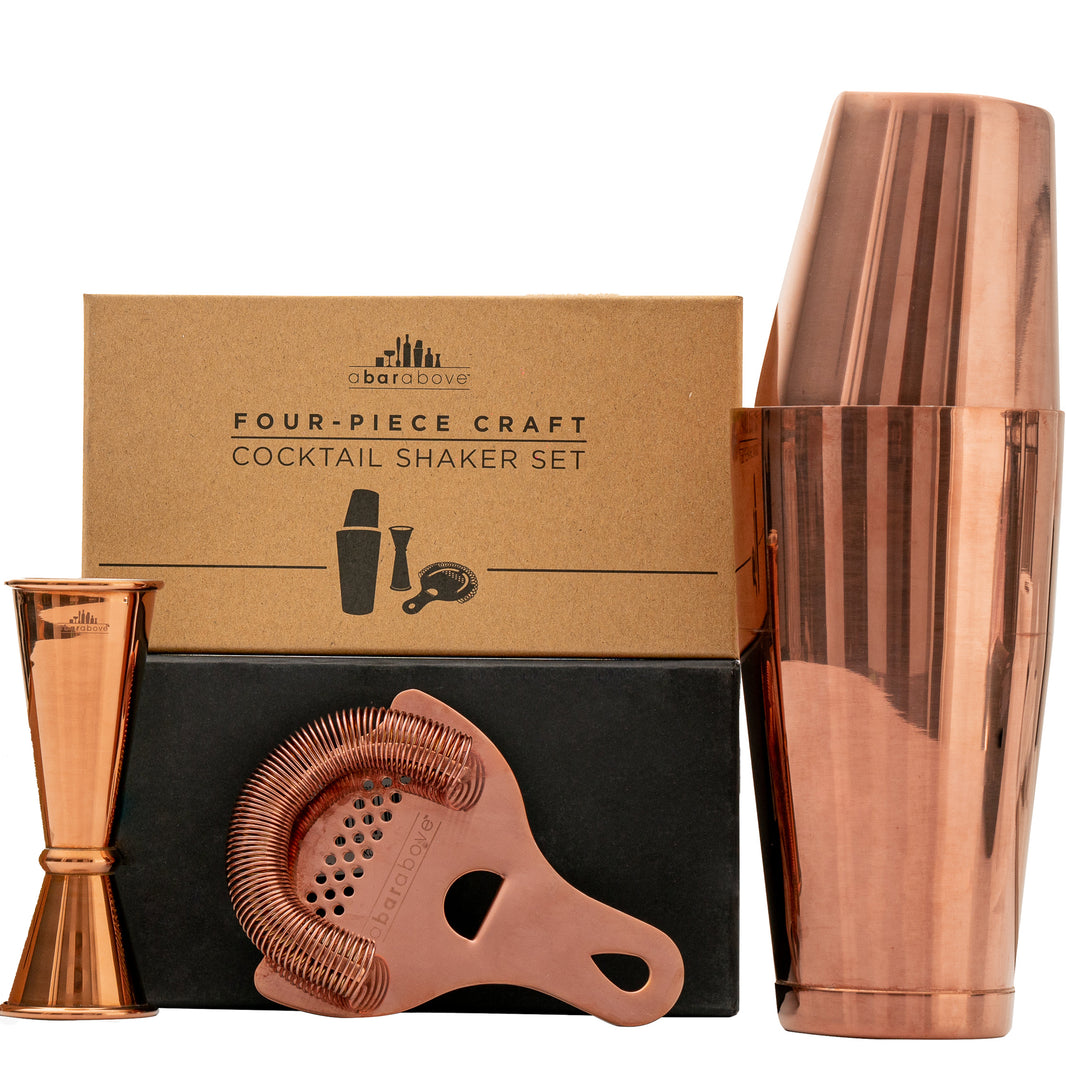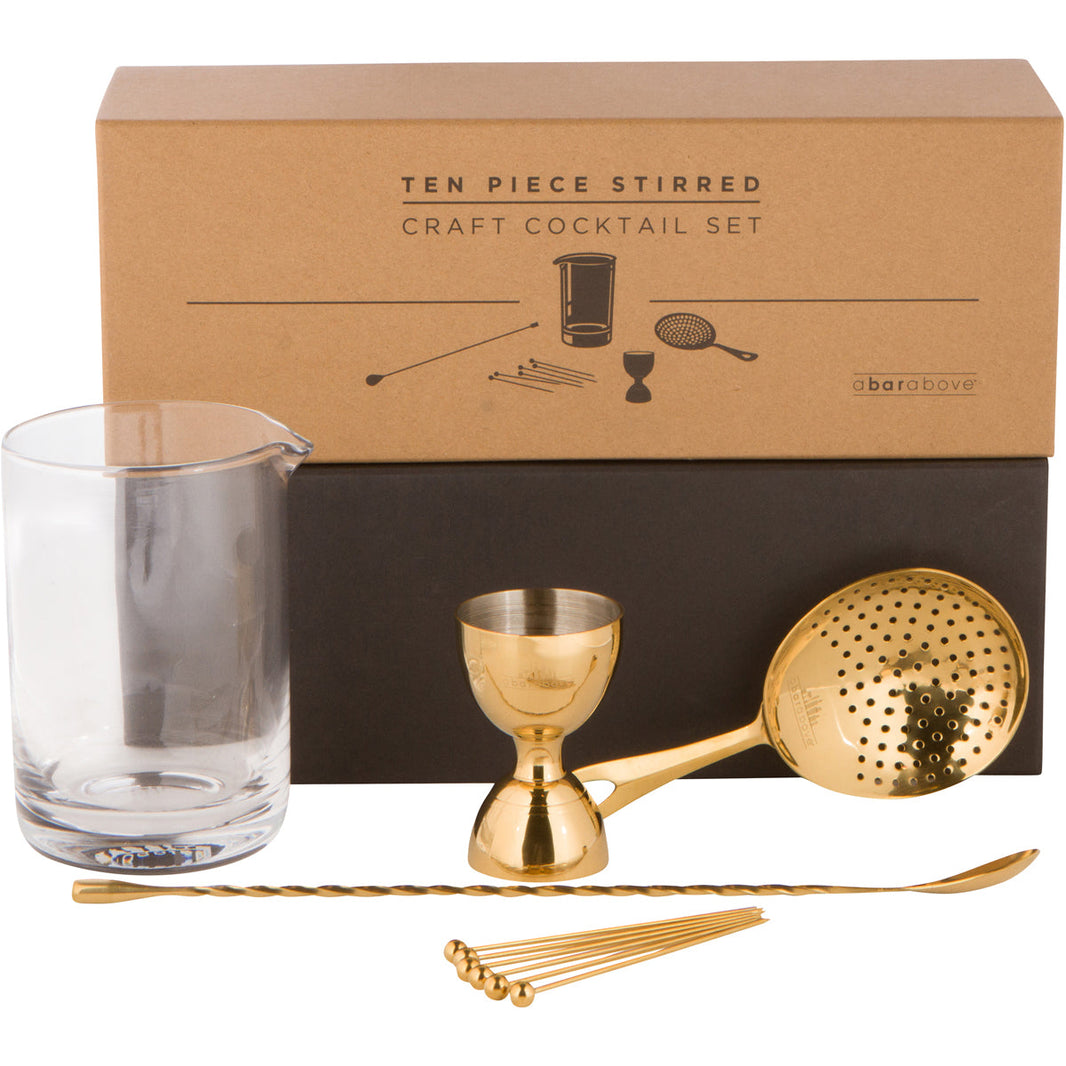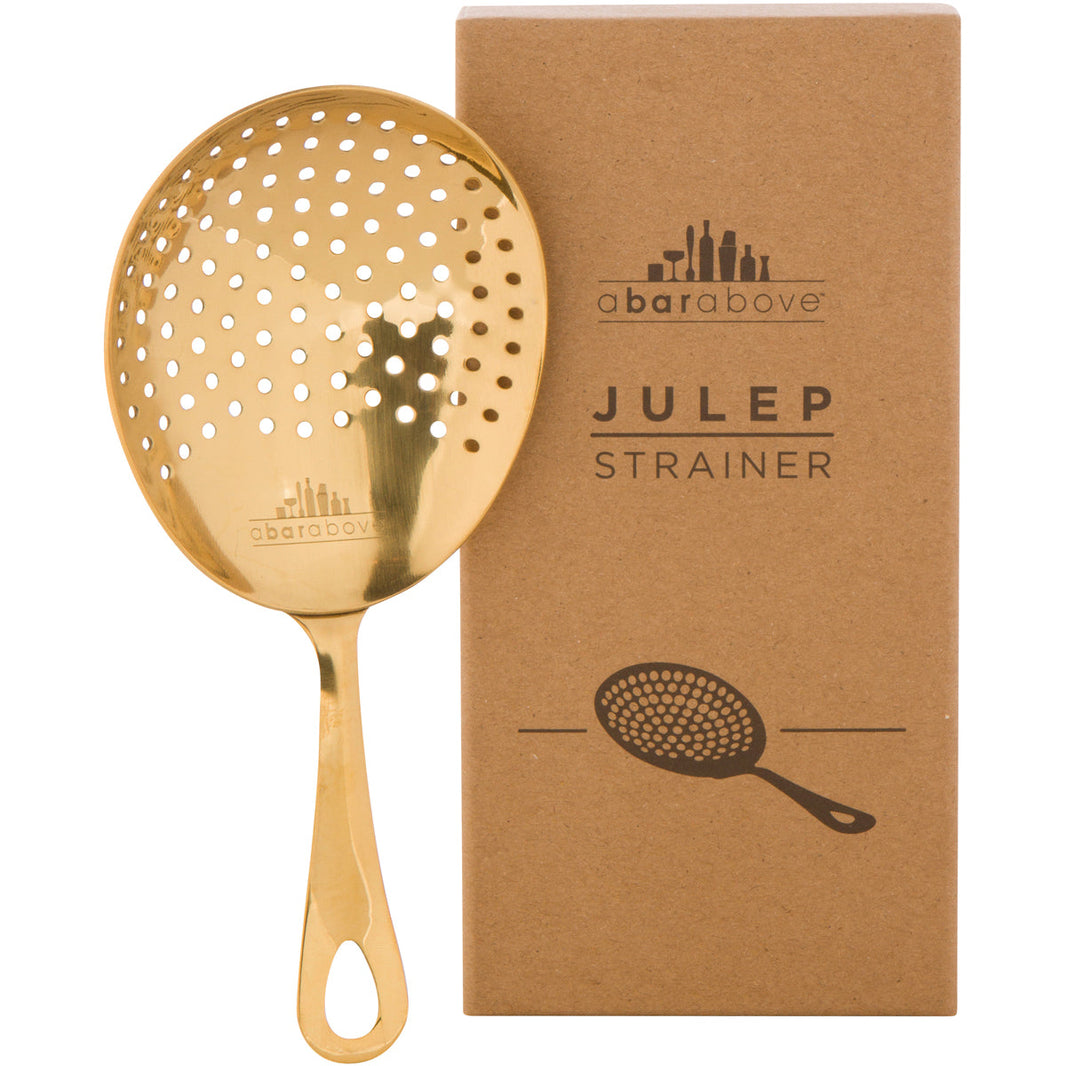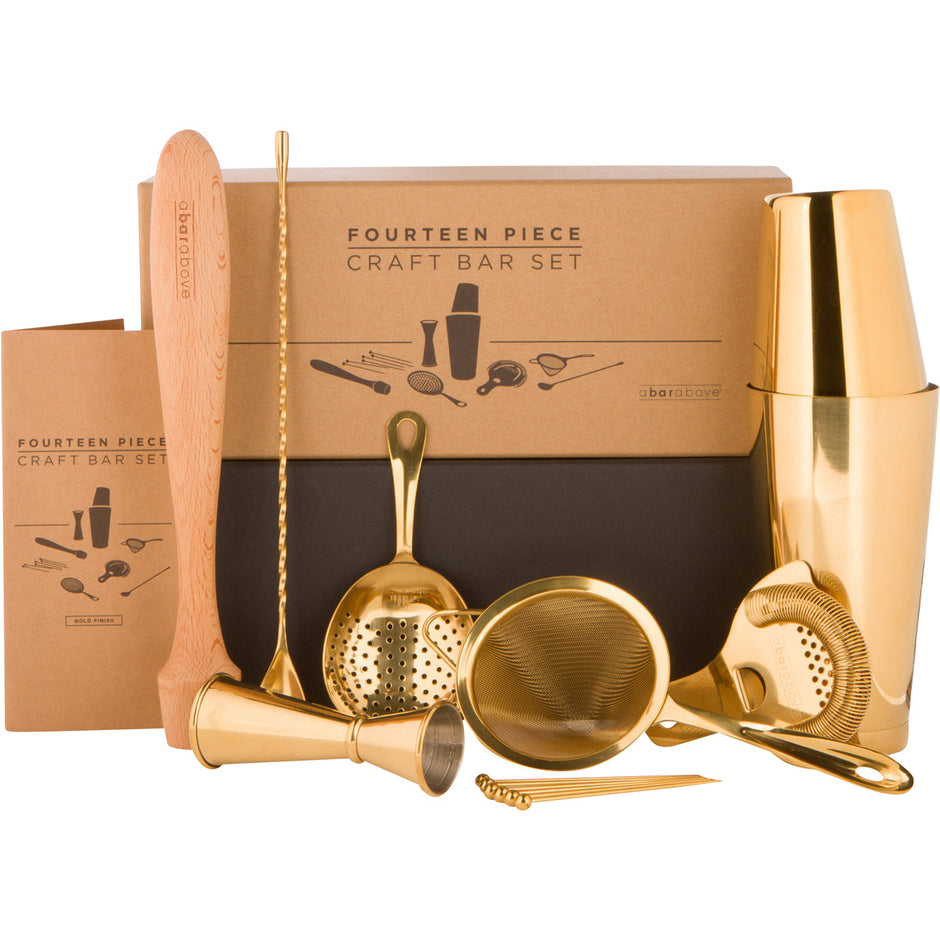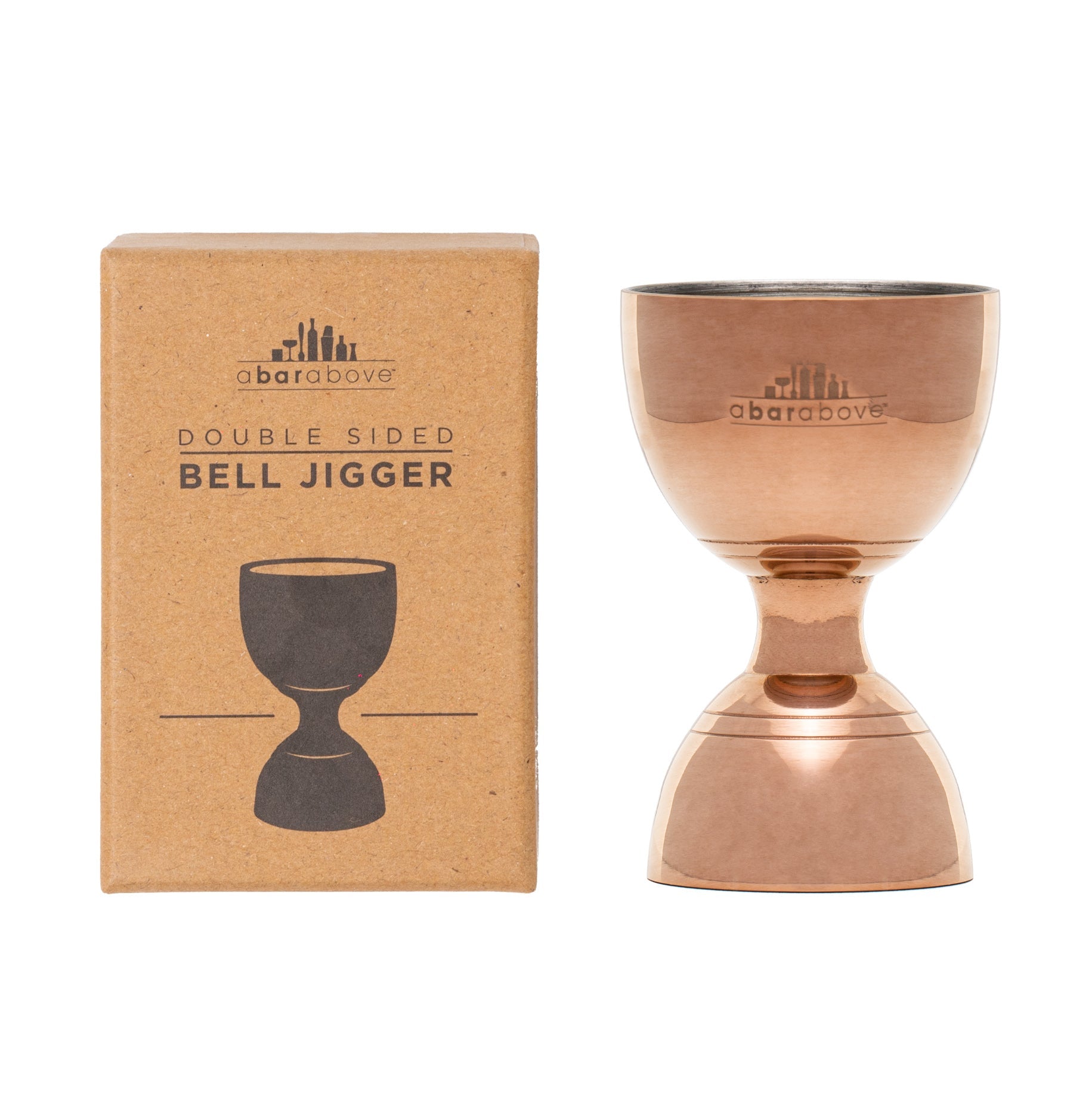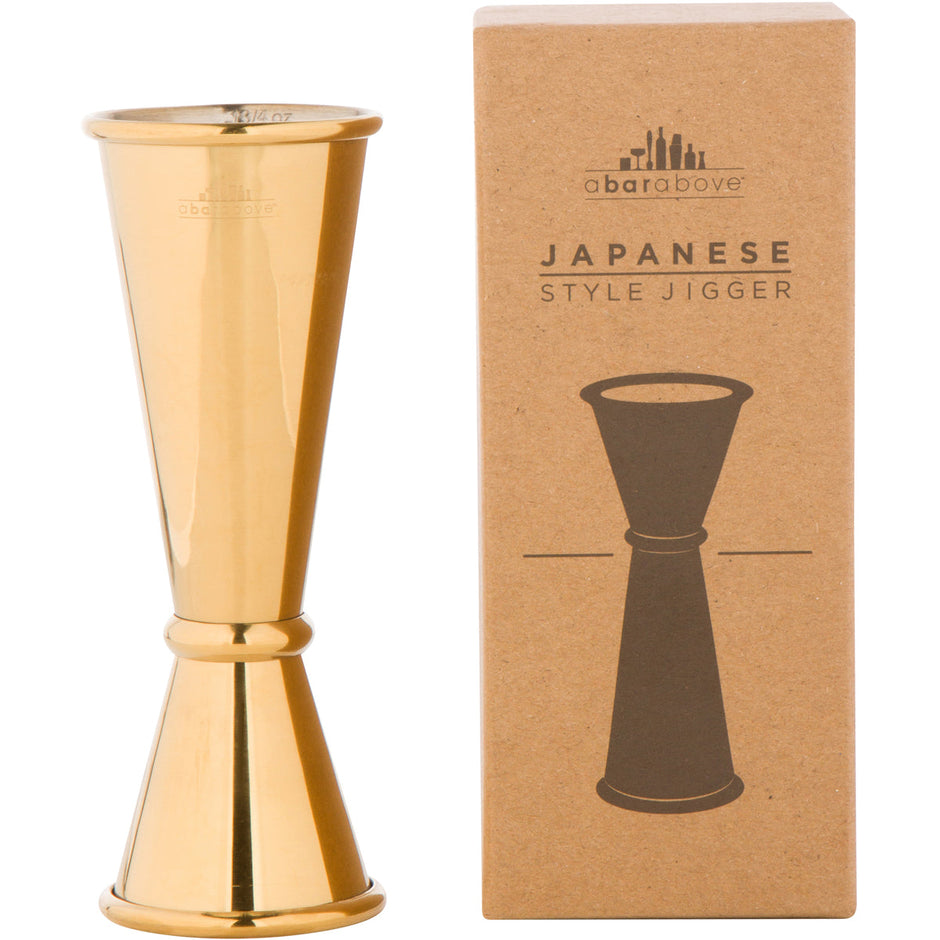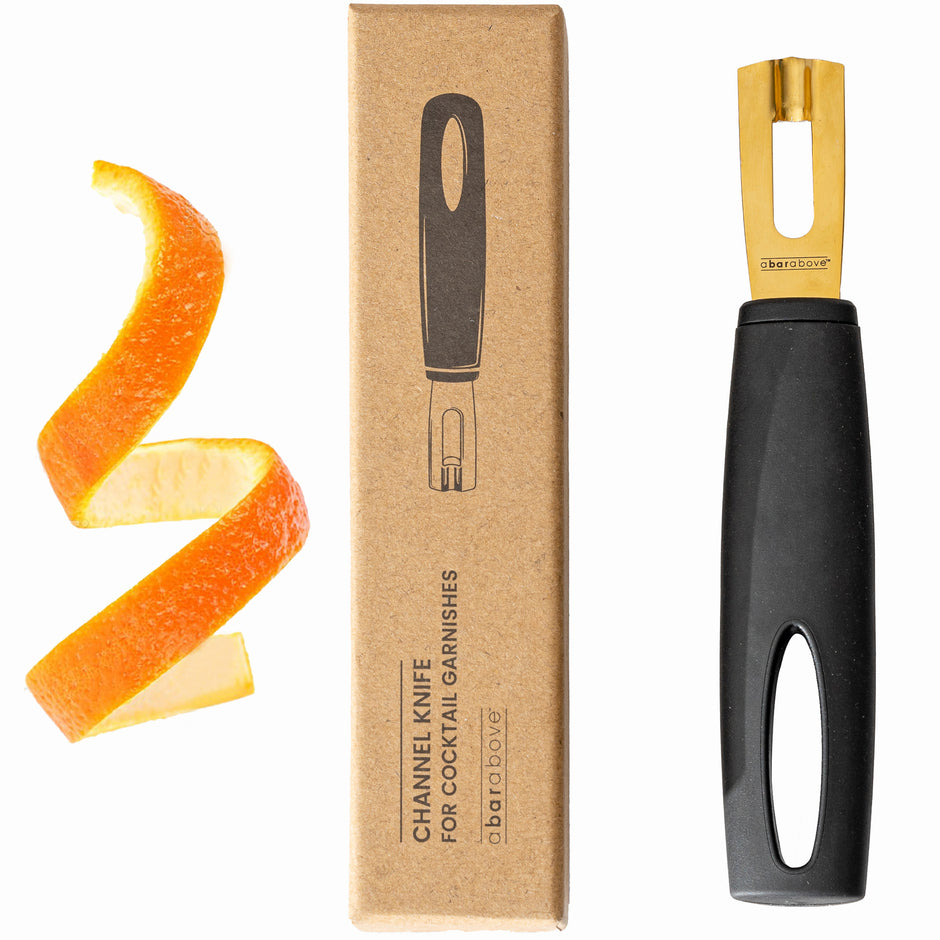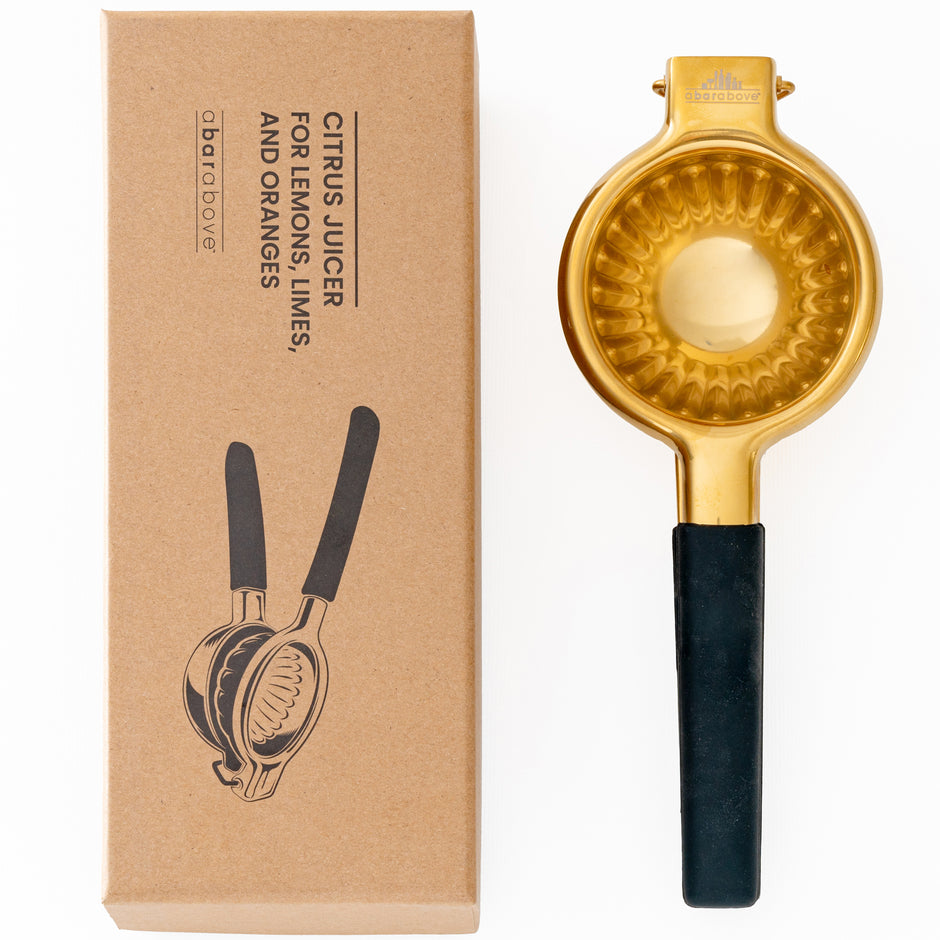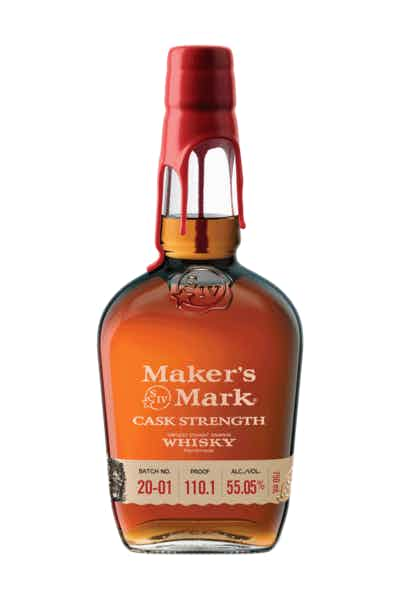Ever found yourself sifting through your bar setup, stumbling upon an old opened bottle of gin and wondering if it’s still good to mix up a drink? It’s a debate hotter than a shaken espresso martini. People usually overlook bar essentials, like knowing shelf life, compared to the thrill of new gadgets and gizmos for their home bar.
This post is locked and loaded with insights that’ll ensure your spirits are serving top-notch flavors, not a one-way ticket to Spoilsville. You’ll discover not just the shelf life of an opened bottle of gin but how to prolong its charisma.
Key takeaways
- Proper storage is essential for prolonging the life of opened gin.
- Sniff and sip regularly to assess the quality of your gin.
- Botanical enhancements can revive a gin’s flavor, to an extent.
- Consistently cool, dark, and dry environments are ideal for spirit storage.
How long does an opened bottle of gin last?
An opened bottle of gin can be a trusty companion for your cocktail adventures, but not indefinitely. Properly stored, gin will keep its character for a good while. Here’s what you should know:
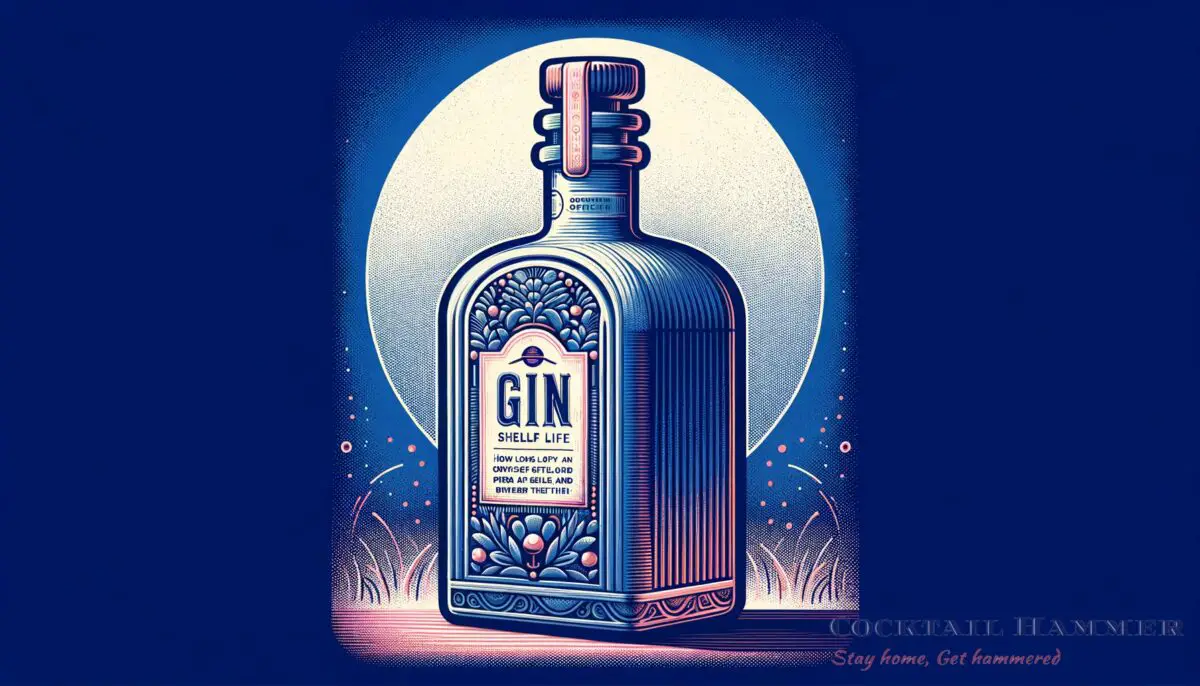
- Storage is key: Keep it cool, dark, and upright to combat the invisible enemies – light, heat, and oxygen.
- Tight seal: Always recork or cap that bottle; even the boldest spirits fear the dreaded oxidization.
- Sniff and sip: Trust your senses – they’re your best pals in gauging if that gin’s gone off.
Gin’s shelf life can stretch up to a couple of years if you’ve kept it like a pro. Once opened, aim to enjoy it within a year for that optimal juniper jive. Don’t let it linger longer than that; its flavor could start to fade, and you want your G&T’s singing, not sighing.
Want to keep the party rolling? Check out the ins and outs of storing your favorite libations.
In my humble glass-clinking opinion, gin, much like any spirit, is more about the experience than just timeframes. An opened bottle might not spoil per se, but you’ll feel the slide from zesty to zzz over time. For example, take that scene in The Great Gatsby where Gatsby’s serving up gin like it’s going out of style – those bottles probably didn’t stick around long enough to lose their flair.
“An opened bottle of gin might not spoil per se, but you’ll feel the slide from zesty to zzz over time. Trust your senses – they’re your best pals in gauging if that gin’s gone off. Always recork or cap that bottle; even the boldest spirits fear the dreaded oxidization.”
Chatting with fellow home bartenders, there’s this shared yarn about a bottle of gin that was forgotten post-party, only to be rediscovered during a spring cleaning spree. Seems the gin had turned as dull as a cloudy day. So, keep that in mind next time you pop open a bottle – and maybe pour a little more usually.
If you feel an urge to give your gin a stylish abode, take a peek at some of the best bar carts on the block.
Storing gin the right way
Your gin’s longevity hinges on storage smarts. It’s a simple but crucial mantra: cool, dark, dry places reign supreme. Sunlight is the nemesis of nuanced flavors, while heat opens the door to degradation.
Picture this: premium gins like London’s Beefeater or New York’s own craft distilleries stress storage to maintain their distinct profiles. Always store your gin away from sunlight, and try to maintain a consistent temperature.
- Consistent Coolness: Aim for a spot with minimal temperature swings.
- Away from the Oven: Keep it distant from heat sources, like ovens or radiators.
For an in-depth dive into keeping your bottles in tip-top shape, explore the essentials of bar tool maintenance.
Tracking gin’s timeline
How do you know when gin’s past its prime? It’s not just about time; it’s about quality drops. Look for these signs – a change in smell, a muted taste, or a less vibrant aroma. Picture a spirit analyst in a lab – they don’t just eyeball dates; they examine characteristics.
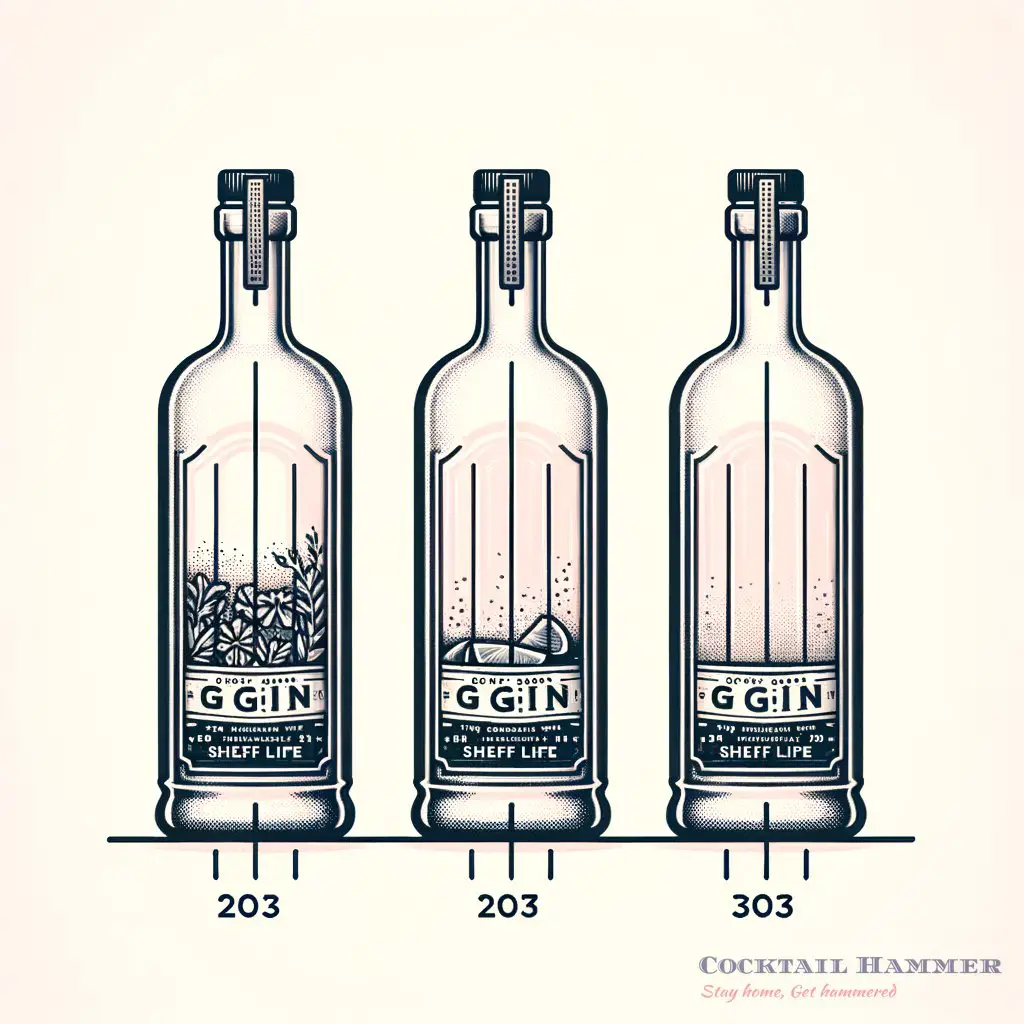
Here are some handy cues:
- Aromatic Alert: Gin’s lively scent fades over time; if it smells dull, it’s not the gin you once knew.
- Taste Test: A clear-downshift in flavor indicates your gin might be on its way out.
Curious about how other spirits fare over time? Gain insights by understanding the real shelf life of vermouth.
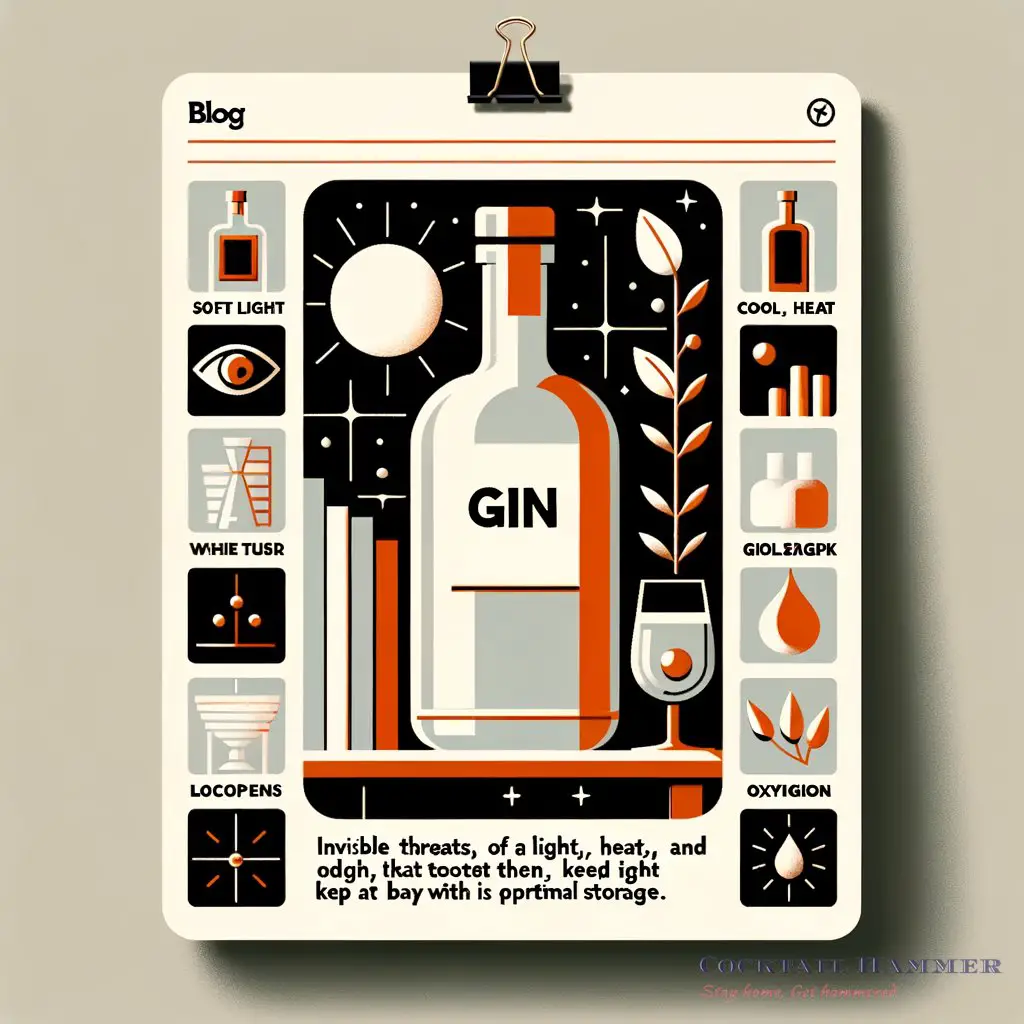
Enhancing those botanicals
Pairing and garnishing can rescue a gin that’s losing its sparkle. Juniper berries, a sprig of rosemary, or a twist of citrus can elevate the essence of the gin, jazzing up your concoction. If you’re rocking a home bar in Manhattan or Brooklyn, experiment like the mixologists do.
Use these garnishes to give your gin a second wind:
- Citrus Zest: Squeezes new life into fading flavors.
- Herb Heaven: Rosemary or basil can add a fresh layer to your G&T.
Enhancing gin is an art – and so’s the gear you use. For top-shelf tips, peruse the guide on selecting the best Boston shakers.
Here’s a swift snapshot summarizing how to diagnose a gin that might be on the downhill:
| Storage Condition | Sign to Watch For | Action to Take |
|---|---|---|
| Temperature | Consistency is key | Find a stable spot |
| Light Exposure | Avoid sunlight | Store in darkness |
| Bottle Seal | Tight seal required | Recork after use |
Keeping your gin at its best isn’t just about what you should do; it’s equally about what you should avoid. Striking that perfect balance between do’s and don’ts can be the difference between a flat martini and a spirited symphony in a glass. Follow this table to ensure your gin always plays the right notes at your home bar soirées.
| Do | Don’t |
|---|---|
| Store gin in a cool, dark place. | Expose gin to direct sunlight and heat. |
| Keep the bottle tightly sealed. | Leave the bottle open or poorly sealed. |
| Use within a year of opening. | Consume if there are signs of spoilage. |
| Trust your senses to gauge quality. | Ignore changes in flavor and aroma. |
| Garnish with fresh botanicals. | Mix with ingredients past their prime. |
More home bartending tips
Dialing in your home bartending game requires a bit more than just spirit savvy. Beyond keeping your gin spry, there are some extra moves you can make to ensure your bar is the toast of the town.
- Document your mixology journey: Recording what works (and what doesn’t) can refine your cocktail crafting.
- Stay in the know: Keeping tabs on industry updates can inspire new creations for your menu.
- Expand your repertoire: Learning new cocktail recipes adds diversity and excitement to any gathering.
- Invest in quality tools: Good gear, from shakers to strainers, makes for better drinks and smoother service.
- Engage your guests: Serving isn’t just about the drink; it’s about the experience. Ask for feedback, and tailor to taste.
For advice on enhancing your home bartending setup, swing by the rundown on the essential bar tools every mixologist should have at their disposal.
If you are a visual learner, check out this video titled ‘How to open a bottle of Six Ravens Gin (The Professional “Sommelier” Way)’
Frequently asked questions (FAQ)
Can you improve the taste of gin that’s starting to go bad?
You can’t turn back the clock on gin that’s actually gone bad, but if it’s just starting to lose its edge, there are tricks to bring back some pizzazz. Infusing the gin with fresh botanicals, spices, or even citrus peels may enhance its flavor. Remember, it’s more about masking the staleness than revitalizing the actual spirit.
Does the brand of gin affect how long it lasts after opening?
The brand doesn’t directly influence how long gin stays at peak quality, but the distillation method and ingredient quality can play a part. Higher-end gins with robust flavor profiles and higher alcohol contents might hold their character a bit longer, but it’s storage and handling that truly determine longevity.
Are there any risks to drinking old gin?
Drinking old gin isn’t likely to be harmful if it has been stored correctly and shows no signs of spoilage. However, the flavor and aromatic qualities probably won’t be as vibrant as they were when the bottle was first opened. If your gin tastes off or has changed in color, it’s best to use your discretion and potentially discard it.
Final thoughts
The life of an opened gin bottle can be quite durable when given the right care. Remembering to store your spirits properly will not only save the quality of your gin but will ensure that each cocktail you craft continues to delight. From storage tips to understanding the subtle signposts of decline, keeping your gin game strong is all about mindful maintenance and a dash of mixology enthusiasm.
Have you used any of these tips to keep your gin fresh, or do you have other methods you swear by? Did I cover everything you wanted to know? Let me know in the comments section below I read and reply to every comment. If you found this article helpful, share it with a friend, and check out my full blog for more tips and tricks on home bartending. Thanks for reading and here’s to your next exceptional gin and tonic!



